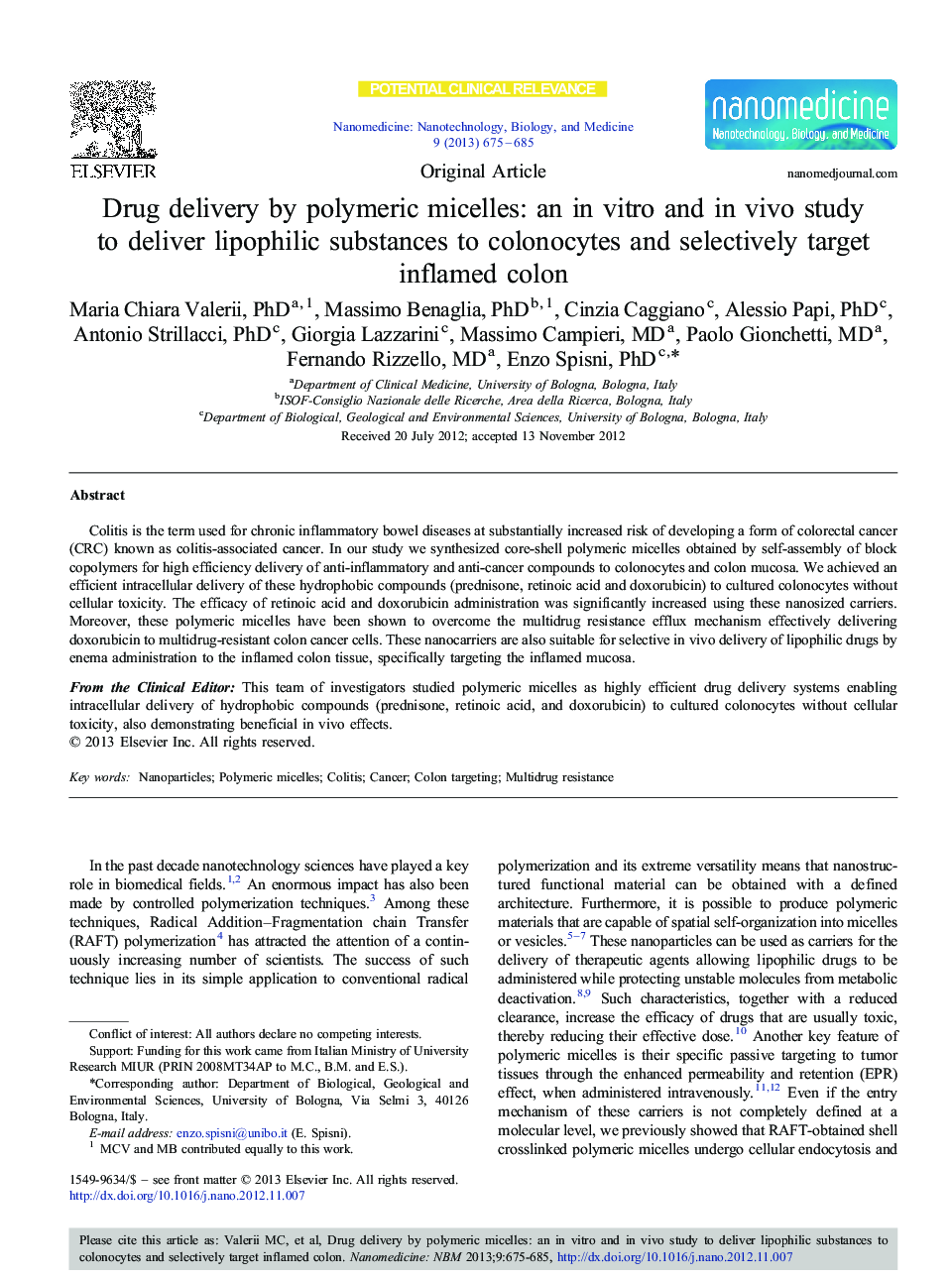| کد مقاله | کد نشریه | سال انتشار | مقاله انگلیسی | نسخه تمام متن |
|---|---|---|---|---|
| 877678 | 911040 | 2013 | 11 صفحه PDF | دانلود رایگان |

Colitis is the term used for chronic inflammatory bowel diseases at substantially increased risk of developing a form of colorectal cancer (CRC) known as colitis-associated cancer. In our study we synthesized core-shell polymeric micelles obtained by self-assembly of block copolymers for high efficiency delivery of anti-inflammatory and anti-cancer compounds to colonocytes and colon mucosa. We achieved an efficient intracellular delivery of these hydrophobic compounds (prednisone, retinoic acid and doxorubicin) to cultured colonocytes without cellular toxicity. The efficacy of retinoic acid and doxorubicin administration was significantly increased using these nanosized carriers. Moreover, these polymeric micelles have been shown to overcome the multidrug resistance efflux mechanism effectively delivering doxorubicin to multidrug-resistant colon cancer cells. These nanocarriers are also suitable for selective in vivo delivery of lipophilic drugs by enema administration to the inflamed colon tissue, specifically targeting the inflamed mucosa.From the Clinical EditorThis team of investigators studied polymeric micelles as highly efficient drug delivery systems enabling intracellular delivery of hydrophobic compounds (prednisone, retinoic acid, and doxorubicin) to cultured colonocytes without cellular toxicity, also demonstrating beneficial in vivo effects.
Graphical AbstractCore-shell polymeric micelles are capable to efficiently deliver lipophilic drugs to colonocytes, overcoming the multidrug resistance of MDR colon cancer cells. These micelles in vivo selectively deliver fluorescent probes to the inflamed colon tissue.Figure optionsDownload high-quality image (438 K)Download as PowerPoint slide
Journal: Nanomedicine: Nanotechnology, Biology and Medicine - Volume 9, Issue 5, July 2013, Pages 675–685